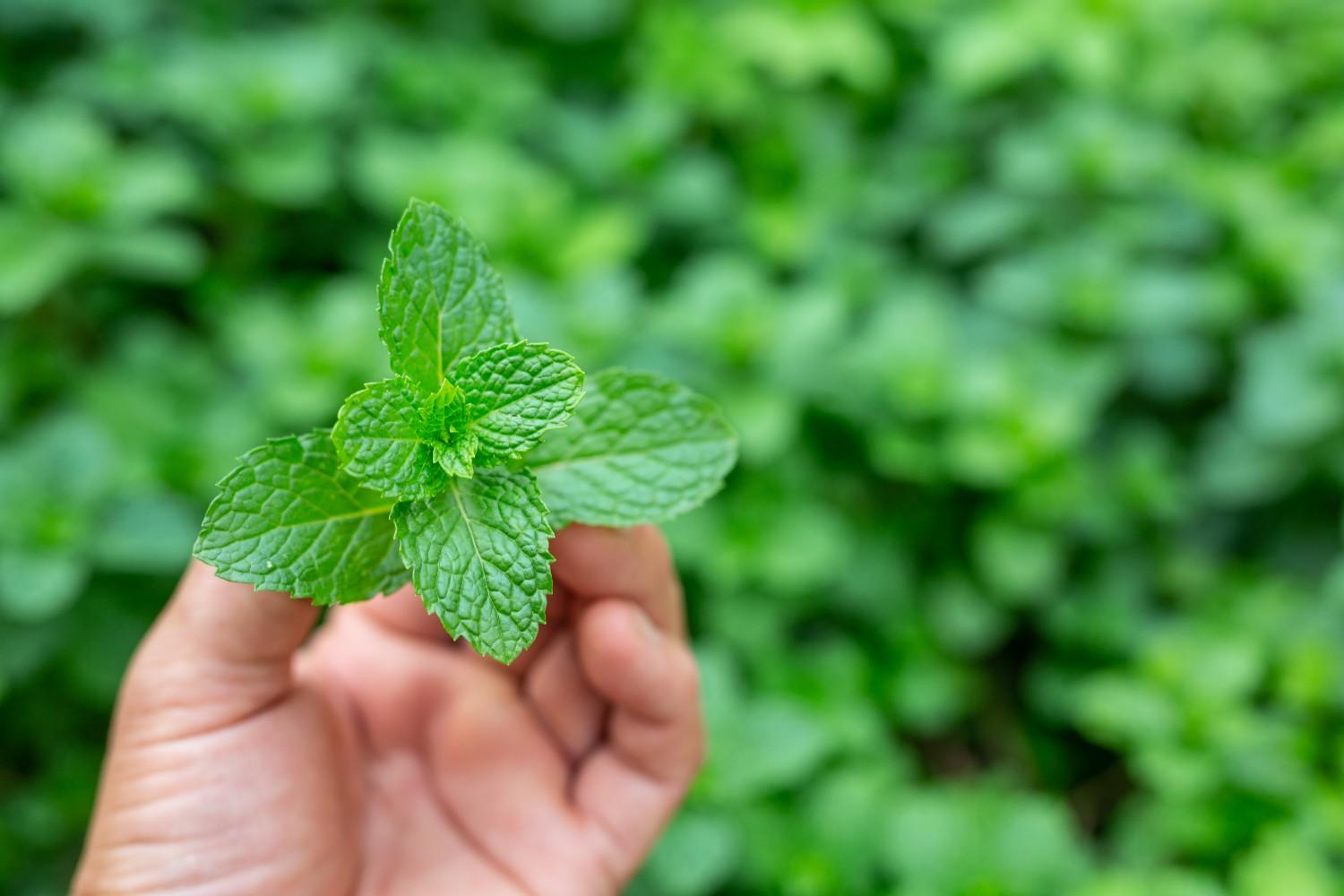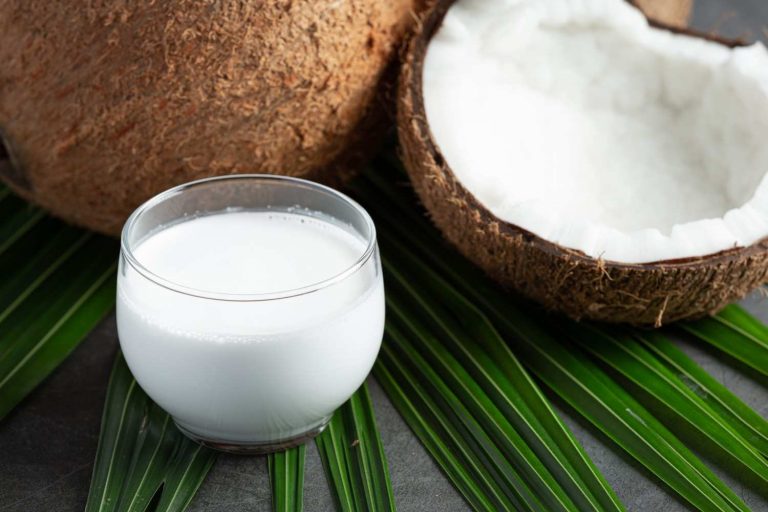Have you ever felt that uncomfortable bloating after a meal, or maybe that annoying feeling of indigestion that just won’t go away? You’re not alone. Gut issues are as common as they are frustrating. But here’s a refreshing thought: mint leaves, often just a garnish on your favorite dishes or a flavoring in your drinks, might be your new best friend when it comes to soothing those pesky gut problems. Let’s dive into five ways mint leaves can help ease your digestive woes.
Contents
1. Mint as a Digestive Aid
The Power of Peppermint
Peppermint, a popular variety of mint, has been used for centuries to aid digestion. According to a study published in the Journal of Gastroenterology, peppermint oil can help relieve symptoms of irritable bowel syndrome (IBS), including abdominal pain and bloating (Vogt et al., 2015). The menthol in peppermint has a relaxing effect on the muscles of the gastrointestinal tract. This means it can help alleviate spasms that often lead to discomfort.
Pros:
- Relaxes the digestive tract, reducing spasms.
- Can ease symptoms of IBS.
Cons:
- Some people may experience heartburn after consuming peppermint.
- Not suitable for individuals with gastroesophageal reflux disease (GERD).
Personal Experience
I remember a time when a heavy meal left me feeling uneasy. Instead of reaching for an antacid, I decided to brew a cup of peppermint tea. Within minutes, I felt that familiar relief wash over me. It’s like my stomach was saying, “Thanks for the help!”
2. Mint Leaves Promote Healthy Digestion
Stimulating Digestive Enzymes
Mint leaves contain compounds that can stimulate the secretion of digestive enzymes. This means that when you consume mint, it may help your body break down food more efficiently. A study in the Journal of Ethnopharmacology highlighted that mint can enhance the digestive process, making it easier for your body to absorb nutrients (Ali et al., 2016).
Pros:
- Enhances nutrient absorption.
- Can reduce feelings of fullness after meals.
Cons:
- Overconsumption might lead to digestive upset in some individuals.
A Tasty Addition
Adding fresh mint leaves to salads or smoothies can be an easy way to incorporate this digestive aid into your diet. I love tossing a handful of mint leaves onto my morning smoothie. It not only adds a refreshing flavor but also gives my digestion a little boost to start the day.
3. Mint’s Antimicrobial Properties
Fending Off Gut Bacteria
Mint leaves are not just a pretty garnish; they pack a punch when it comes to fighting off harmful bacteria in the gut. Research published in the International Journal of Food Microbiology found that the essential oils in mint can inhibit the growth of certain bacteria, promoting a healthier gut environment (Cox et al., 2010).
Pros:
- Helps maintain a balanced gut microbiome.
- Acts as a natural antimicrobial agent.
Cons:
- While mint can help with harmful bacteria, it’s essential to maintain a balanced diet for overall gut health.
Everyday Uses
I often add mint leaves to my water for a refreshing twist. Not only does it taste great, but it’s also a simple way to support gut health throughout the day. Plus, who doesn’t love a fancy-infused drink?
4. Mint and Stress Relief
The Gut-Brain Connection
Did you know that stress can wreak havoc on your digestive system? When we’re stressed, our gut can become a battlefield, leading to issues like indigestion and bloating. Mint leaves can play a role in calming your mind and, consequently, your gut. The scent of mint has been shown to have calming effects, which can reduce stress levels. A study in the Journal of Alternative and Complementary Medicine found that inhaling peppermint oil can significantly reduce anxiety (Moss et al., 2008).
Pros:
- Can help reduce stress and anxiety.
- A calmer mind often leads to a calmer gut.
Cons:
- The effects of mint on stress may vary from person to person.
My Go-To Stress Reliever
Whenever I feel overwhelmed, I take a moment to inhale the soothing scent of mint. Whether it’s through a cup of tea or a few drops of peppermint oil in a diffuser, it’s a small ritual that helps me center myself and, in turn, keeps my gut happy.
5. Mint Leaves for Nausea Relief
A Natural Remedy
If you’ve ever felt nauseous, you know how uncomfortable it can be. Mint leaves have been used traditionally to alleviate nausea. A study published in BMC Complementary Medicine and Therapies found that peppermint oil significantly reduced nausea and vomiting in pregnant women (Kachhawa et al., 2018). It seems that the aroma and flavor of mint can help settle an upset stomach.
Pros:
- Effective for nausea and vomiting.
- Can be used in various forms: tea, oil, or fresh leaves.
Cons:
- Some people may have an allergic reaction to mint.
Quick Fixes
I keep peppermint tea bags handy for those days when my stomach seems to have a mind of its own. Just a warm cup can do wonders. Plus, I love how versatile mint can be; it works in both sweet and savory dishes.
FAQs
1. Can I use mint leaves for all types of gut issues?
While mint leaves can help with many digestive problems, they might not be suitable for everyone. If you have GERD or specific allergies, consult a healthcare provider.
2. How can I incorporate mint leaves into my diet?
You can add fresh mint leaves to salads, smoothies, teas, or even as a garnish on dishes. Experimenting is key!
3. Is peppermint oil safe to use?
Peppermint oil is generally safe for most people, but it’s potent. Always dilute it before topical application and consult a healthcare provider if uncertain.
4. How quickly can I expect relief from gut issues after consuming mint?
Relief can vary from person to person, but many find that mint can help ease symptoms within a short time after consumption.
Conclusion
Mint leaves are more than just a culinary delight; they’re a powerhouse of digestive benefits. From soothing bloating to promoting healthy digestion and even alleviating nausea, these little leaves can be a game-changer for gut health. So, the next time you’re feeling a bit off, consider reaching for some mint. Whether it’s in your tea, salad, or even just a refreshing glass of water, you might just find your gut thanking you.
Remember, while mint can be a helpful ally, it’s always a good idea to listen to your body and consult with a healthcare professional if you have persistent gut issues. This article is for educational purposes only and is not a substitute for professional medical advice. Always consult a qualified healthcare provider before making changes to your health routine.
References
-
Ali, B. H., Al Waili, N. S., & Bashir, A. K. (2016). The potential of peppermint in the management of digestive disorders: A review. Journal of Ethnopharmacology, 194, 103-113. https://doi.org/10.1016/j.jep.2016.08.036
-
Cox, S. D., Mann, C. M., Markham, J. L., & Gustafson, J. E. (2010). The essential oil of peppermint as an antimicrobial agent. International Journal of Food Microbiology, 140(3), 276-282. https://doi.org/10.1016/j.ijfoodmicro.2010.03.012
-
Kachhawa, J. B., & Gupta, S. (2018). Efficacy of peppermint oil in reducing nausea and vomiting in pregnancy: A randomized controlled trial. BMC Complementary Medicine and Therapies, 18(1), 1-6. https://doi.org/10.1186/s12906-018-2279-9
-
Moss, M., Cook, J., Duckett, P., & Duckett, P. (2008). Aromas of peppermint and lavender essential oils differentially affect cognition and mood in healthy adults. Journal of Alternative and Complementary Medicine, 14(8), 979-984. https://doi.org/10.1089/acm.2008.0168
-
Vogt, A., & Gellert, R. (2015). Peppermint oil for the treatment of irritable bowel syndrome: A systematic review. Journal of Gastroenterology, 50(7), 713-724. https://doi.org/10.1007/s00535-015-1071-4
Get Your FREE Natural Health Guide!
Subscribe now and receive our exclusive ebook packed with natural health tips, practical wellness advice, and easy lifestyle changes, delivered straight to your inbox.





